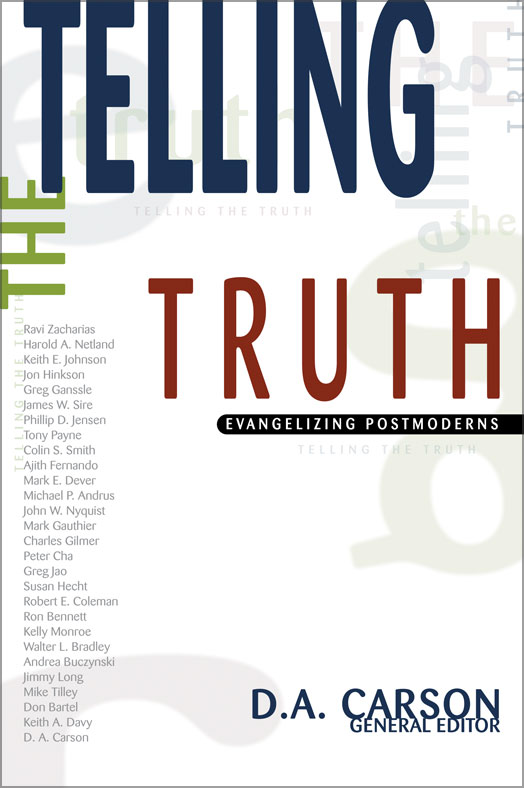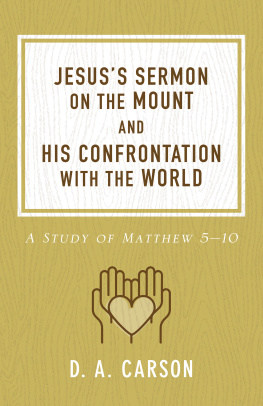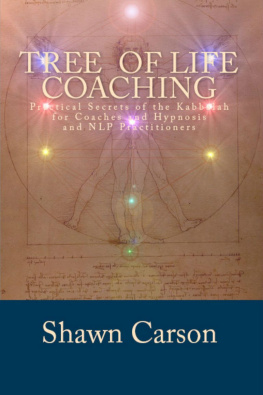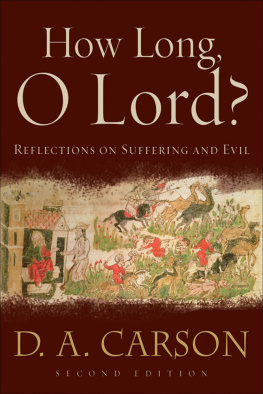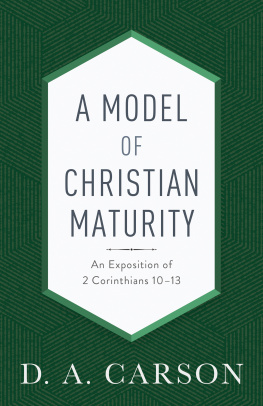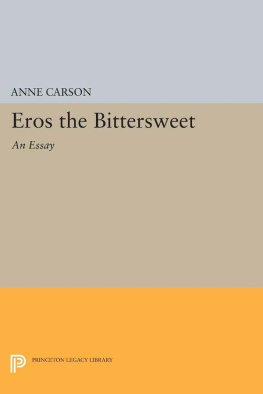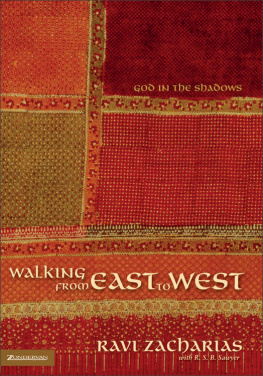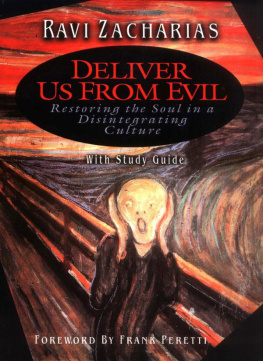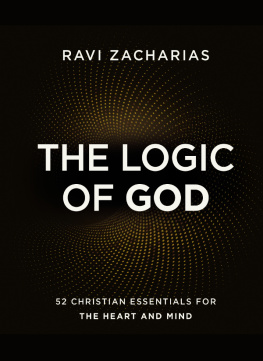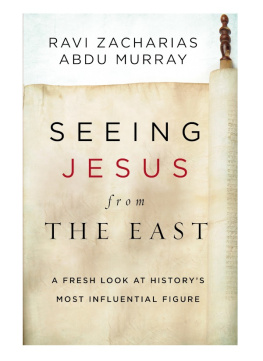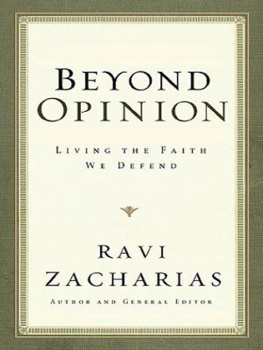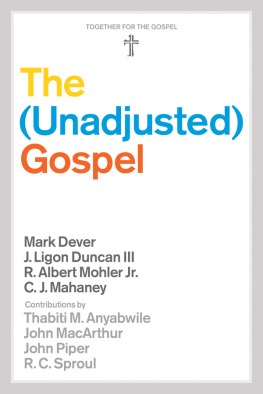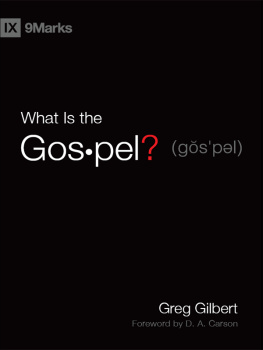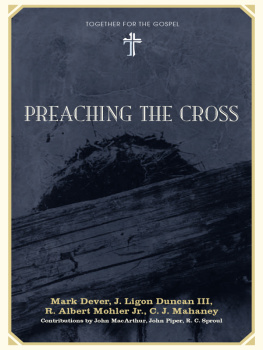ZONDERVAN
Telling the Truth
Copyright 2000 by D. A. Carson and the Bannockburn Institute
All rights reserved under International and Pan-American Copyright Conventions. By payment of the required fees, you have been granted the non-exclusive, non-transferable right to access and read the text of this e-book on-screen. No part of this text may be reproduced, transmitted, down-loaded, decompiled, reverse engineered, or stored in or introduced into any information storage and retrieval system, in any form or by any means, whether electronic or mechanical, now known or hereinafter invented, without the express written permission of Zondervan.
ePub Edition March 2010 ISBN: 978-0-3108-6042-6
Requests for information should be addressed to:
ZondervanPublishingHouse
Grand Rapids, Michigan 49530
Library of Congress Cataloging-in-Publication Data
Carson, D. A.
Telling the truth : evangelizing postmoderns / D. A. Carson, general editor.
p. cm.
Includes bibliographical references and index.
ISBN: 0-310-23432-8
1. Evangelistic workCongresses. 2. PostmoderismReligious aspectsChristianity
Congresses. I. Carson, D. A.
BV3795.T45 2000
269.2-dc 21
00-039262
CIP
All Scripture quotations, unless otherwise indicated, are taken from the Holy Bible: New International Version. NIV. Copyright 1973, 1978, 1984 by International Bible Society. Used by permission of Zondervan Publishing House. All rights reserved.
00 01 02 03 04 05
BANNOCKBURN
INSTITUTE
for Christianity & Contemporary Culture
T his book is a project of Bannockburn Institute for Christianity and Contemporary Culture, an international educational institute located just north of Chicago, Illinois, in the United States of America. The Institute endeavors to bring Christian perspectives to bear on particularly important aspects of contemporary culture. It pursues this task, in part, by establishing Centers that address specific arenas such as bioethics, public education, personal and relational growth, and family life. It also carries out broader initiatives, such as the examination of postmodernism reflected in the current volume. The Institute and its various centers produce a wide range of educational resources (including books, audios, videos, web sites, Internet services, newsletters, journals, and a variety of other printed and computer-based resources) and hold conferences and workshops in various parts of the world.
For more information about Bannockburn Institute or its various Centers, contact:
Bannockburn Institute
2065 Half Day Road
Bannockburn, IL 60015
Phone: 847.317.8164
Fax: 847.317.8153
E-mail: bi@biccc.org
Information is also available on the Institutes internet web site:
www.biccc.org
T his book is one of the outcomes of a conference held at Trinity Evangelical Divinity School May 13-15, 1998. Around nine hundred people attended, about half of them pastors and church workers, and half of them university workers. Enthusiasm was so high that we made the decision to publish the papers. An added incentive was that the schedule allowed conference participants to attend all the plenaries but only nine seminars. To preserve the material in this way will allow much wider dissemination of content that is too useful to be lost. Most of the presentations from that conference are here.
I should make two things plain right away. First, although Trinity was the primary sponsor of the conference, the cosponsors were InterVarsity Christian Fellowship, Campus Crusade for Christ, the Navigators, the Billy Graham Center Institute of Evangelism, and the Bannockburn Institute for Christianity and Contemporary Culture. These organizations contributed time, planning, resources, and personnel. Some of the papers in this book tell us, in effect, what these organizations are doing in the sphere of evangelizing postmoderns. Certainly we at Trinity could not have mounted this effort by ourselves.
Second, a great deal of planning was carried out by a small group consisting of John Nyquist, Harold Netland, and me. Since the other two have more experience, I was privileged to coordinate things and learn from them. Logistical planning was ably chaired by John Kilner of the Bannockburn Institute. The Director of the conference, Roland Kuhl, managed to be ubiquitous and untangled all the knots with charm and courtesy.
Early on we made a few crucial decisions. We decided that anyone invited to speak at the conference must be actively engaged in evangelism. This was not the sort of conference where we wanted mere theoreticians, no matter how capable. We also decided that we needed not only to hear thoughtful cultural analysis but also to probe some of the most important turning points of biblical theology, to listen to the experiences of those who are proving fruitful in contemporary evangelism, and to glean something from those who are thinking hard both strategically and practically.
I want to thank each of the people who contributed to these pages. They responded quickly to my inquiries and reminders, and produced a remarkable collection of papers. Anyone interested in evangelism in the Western world will read these chapters with delight and profit. Where particular priorities or perspectives seem a little removed from where you sit, you will find more than adequate stimulation from the rest of the book.
Finally, my heartfelt thanks go to my graduate assistants, Tom Wood and Sigurd Grindheim, and to my secretary, Judy Tetour, for countless hours of labor discharged with good cheer and wonderful efficiency. It has been a pleasure to work with them.
Soli Deo gloria.
D. A. Carson
Michael P. Andrus is senior pastor of the First Evangelical Free Church of St. Louis, Missouri. The church, a spontaneous church plant to which he was called as the first pastor in 1984, has grown from sixty to an average attendance of eighteen hundred. He has also seen the establishment of six other Free Churches in St. Louis. Andrus was educated at Calvary Bible College, Kansas City, Missouri (B.A. with highest honor in preministerial, 1966), Southern Methodist University, Dallas, Texas (M.A. in philosophy, 1969), Dallas Theological Seminary (Th.M. with highest honor in historical theology, 1971), and Trinity Evangelical Divinity School, Deerfield, Illinois (D.Min., 1994).
Don Bartel is codirector of the U.S. community ministries of the Navigators and coordinator of the Scriptural Roots of Ministry study processes. He also serves on the steering committee of the Coalition of Urban Pastors in Philadelphia. He has, over the years, pioneered campus and community ministries while training others to reach those without Christ in their natural spheres of influence through the use of mission outpost concepts.
Ron Bennett is director of the Strategic Resource Group for the Navigators Church Discipleship Ministry. This group develops materials and services for churches interested in becoming intentional in the disciple-making and evangelism process. He received his B.A. in aerospace engineering from Iowa State University in 1967 and worked for Boeing Aircraft in Seattle, Washington. He has been on staff with the Navigators for twenty-seven years and has led ministries on campuses, military bases, and in the community.
Walter L. Bradley is professor of mechanical engineering at Texas A&M University, a position he has held since 1976. He also has been an associate staff member of Campus Crusade for Christ since 1968, working with students and faculty on campus. He received his B.S. in engineering science from the University of Texas in 1965 and his Ph.D. in materials science and engineering in 1968. He has coauthored one book,

